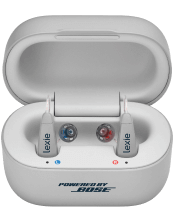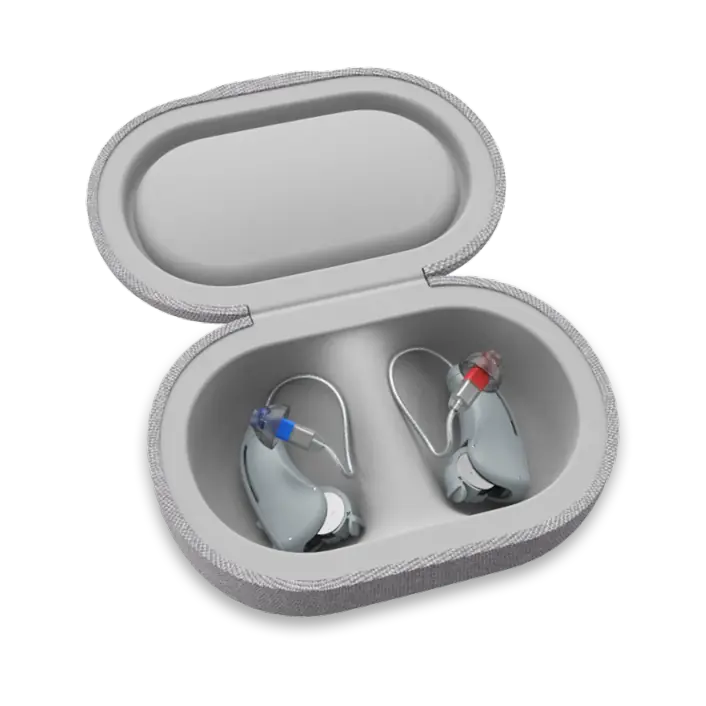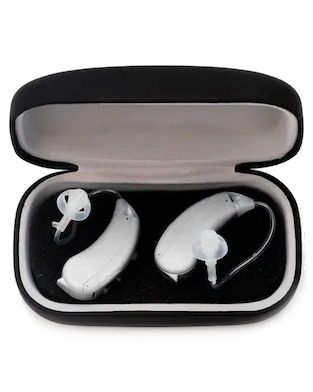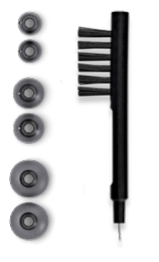How Ototoxicity can Lead to Hearing Loss
Published: September 8, 2021
Updated: October 5, 2023
5 Medications That Can Cause Ototoxic Hearing Loss
When dealing with a new development of hearing loss, you might be wondering what the cause is. While hearing loss is often associated with aging or damage to your ears, these are not the only things that can cause hearing loss. In fact, certain medications—known as ototoxic medications—can be a common cause of hearing loss.
This happens often with older adults who take certain medications on a daily basis, and if one or more of the medications is an ototoxic medication, it can cause damage to the cochlea in the inner ear. The cochlea, which plays a key role in the ear’s auditory process, when damaged, will result in hearing loss and sometimes even issues with balance.
While there are over 200 medications that can cause ototoxic hearing loss, some of them are more common in our daily lives than you might think.
Common Medications That Can Cause Ototoxic Hearing Loss
Aspirin (salicylate)
Aspirin-containing drugs, especially when taken in large doses, can cause temporary hearing loss in individuals.
Non-steroidal anti-inflammatory drugs (NSAIDs)
These include common medications such as ibuprofen, naproxen, and diclofena.
Antibiotics
Some antibiotics such as neomycin, gentamicin, streptomycin, tobramycin, and vancomycin can lead to ototoxicity. These strong antibiotics can cause both hearing loss and balance issues. The most ototoxic antibiotic is neomycin.
Loop diuretics (also called water pills)
Often those used to treat heart failure or high blood pressure (e.g., Lasix, Demadex), loop diuretics can cause hearing loss and tinnitus.
Chemotherapy
Treatments containing platinum (e.g., cisplatin, carboplatin, bleomycin). While the effects of ototoxicity can go away after discontinuing some medications, the ototoxic hearing loss that accompanies chemotherapy can be irreversible and severe.
Other Important Factors
While all of these medications can cause ototoxicity, it often varies and depends on your dosage, kidney function, how long you’ve been taking the medication, and the amount of ototoxic medications taken on a regular basis, as a regular schedule of two or more medications is more likely to cause ototoxic hearing loss than sporadic doses of Aspirin.
Signs to Look Out For
A change to your balance can be indicative that your medications are causing ototoxic hearing loss; it’s advised to talk to your health care provider if this is the case. In some cases, tinnitus (ringing in the ears) is a more problematic symptom than hearing loss itself, which is why it’s advised to have tinnitus checked out should it arise without warning.
How to Avoid Ototoxic Hearing Loss
While there is no current approved protection strategy against ototoxicity, it’s encouraged to avoid loud noises, use hearing protection, and monitor your balance and hearing if you suspect an issue with ototoxic hearing loss.
Despite the ototoxicity of some medications, they’re often required and can’t be avoided. If this is the case, you might work with your audiologist to look into ways to manage the effects of ototoxic hearing, which can include hearing aids or amplifiers.
If you’re struggling with hearing loss and are looking for ways to manage your hearing issues, Lexie offers free consultations with their Lexie Experts®. Schedule a call today to see if hearing aids are right for you.






